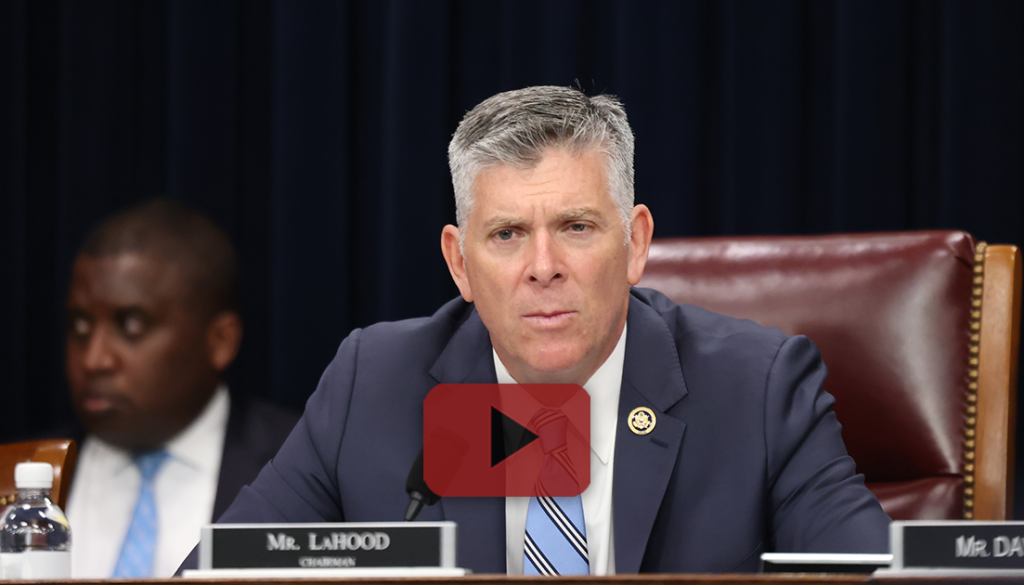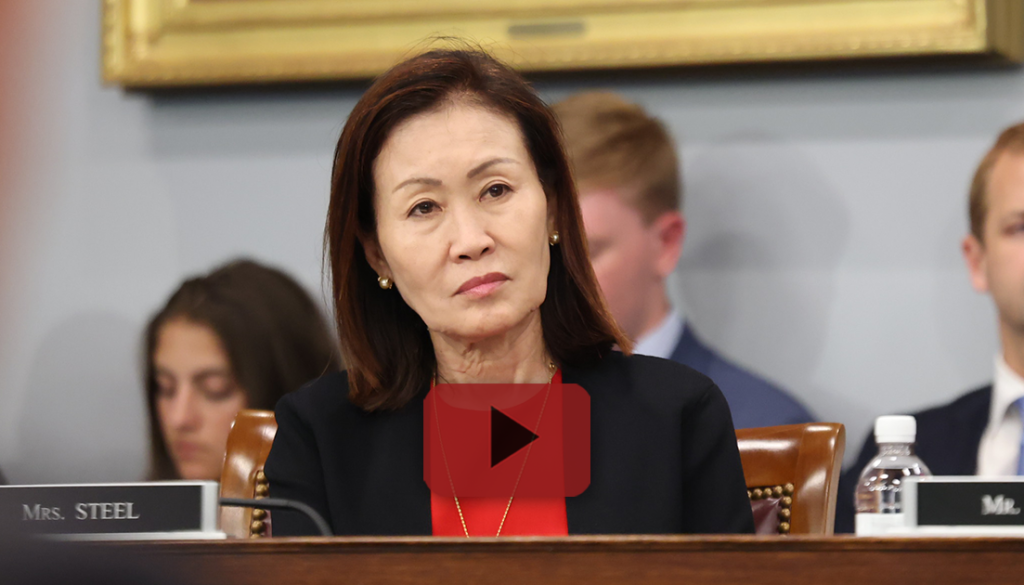WASHINGTON, D.C. – In the wake of the fraud and improper payments that characterized the unemployment insurance (UI) program during the COVID-19 pandemic, Congress has the opportunity to prevent a repeat and reform the UI program to support American workers and businesses. According to the Government Accountability Office, an estimated $100-$135 billion was lost to UI fraud during the pandemic alone. In response, the House passed the bipartisan Protecting Taxpayers and Victims of Unemployment Fraud Act (H.R. 1163), which includes steps to strengthen program integrity, recover lost funds, and prevent future fraud. Meanwhile, Democrats are proposing legislation to push the UI program further from the reach of Congressional oversight by adding it to the list of 80-plus federal welfare programs.
Expert witnesses during a Ways and Means Work and Welfare Subcommittee hearing this week identified key areas ripe for reform in the UI program to make it more efficient and accountable. These include strengthening program integrity through identity verification, expanding reemployment services to get people receiving unemployment quickly back to work, and ensuring states receive funds intended to help them administer the UI program.
The hearing focused on dueling records of different state programs. On the one hand, states, like Iowa, have used the UI program as a bridge between jobs and have successfully invested in a robust case management system to help people find a job that fits their skills. States like California and New York were highlighted for their failed record on UI, noting that those states’ unemployment loan debt to the federal government will cause small businesses located there to pay higher taxes.
The Deficiencies of COVID-era Unemployment Insurance Are Reminiscent of Past Crises
The federal government collects unemployment insurance taxes, called Federal Unemployment Tax Act (FUTA) taxes, from employers in each state, but often fails to return most of it to states to help administer UI programs. In Fiscal Year 2022, states received $3.7 billion less in administrative funding than employers collectively paid in FUTA taxes. The administrative financing mechanism for UI has prevented states from investing in long-term technology solutions, as one witness testified to Work and Welfare Subcommittee Chairman Darin LaHood (IL-16). He recommended that Congress change the law so states receive more of the tax revenue collected by the federal government to help states administer a UI program.
Rep. LaHood: “Outside economic downturns such as the Great Recession of 2008 and COVID-19, states routinely receive less than half of federal tax revenues paid by employers to administer the UI program…It’s clear that substantial amounts of tax revenue raised specifically for UI administration is not ending up in the state agency hands to enact needed system improvements. Mr. Raderman, can you explain some of the challenges this administrative financing mechanism creates and what can be done to improve it?”
Will Raderman, employment policy expert: “The current financing mechanism is causing states to manage their programs with bare-bones resources and with little to no guaranteed funding each year to actually focus on system improvements. The result of that is a lot of the problems during COVID were seen in past crises like Hurricane Katrina as well, because the financing system is not in a good place to let states proactively address those problems over time…There needs to be a stronger connection between what’s being raised for program administration and what’s being returned to states each year.”
LaHood: “What’s your recommendation on improving that connection from a public policy standpoint?
Raderman: “There’s also the issue that some of the federal accounts that manage the dollars end up diverting funds away from program administration…making sure those funds are actually going back to states is crucial as well.”
LaHood: “What you just mentioned, is it your recommendation that it be codified into law?”
Raderman: “There’s a statutory provision that is diverting funds away from the administrative account and our view at the Niskanen Center is to change that.”
Small Businesses Pay Higher Taxes For State Mismanagement
Four years after the COVID-19 pandemic, states like California and New York have still not repaid their unemployment insurance loans from the federal government. Rep. Michelle Steel (CA-45)’s home state of California still has a $18.3 billion outstanding balance. If these state governments don’t repay these federal loans, by law, employers in those states will pay higher FUTA taxes. Rep. Steel, along with Rep. Claudia Tenney (NY-24), has introduced legislation to protect small businesses from tax hikes caused by state mismanagement.
Rep. Steel: “According to the Pandemic Response Accountability Committee, California sent $800 million in pandemic unemployment benefits to 45,000 prisoners. Improper payments to prisoners, scammers and international gangs are part of the reason California has a federal Unemployment Insurance loan balance to the federal government of $18.3 billion. If it’s not going to be paid, then guess what happens? Employers have to pay a much higher rate. Some estimates show the California Employment Development Department distributed approximately $30 billion…during the pandemic.”
States Lead The Way In Helping People Find A New, Better Job
The Reemployment Services and Eligibility Assessment (RESEA) program helps people receiving UI find a new career path compatible with their skills and experience. Last November, the Ways and Means Committee unanimously passed the BRIDGE for Workers Act (H.R. 5861) that expands reemployment services to all UI claimants, not just those close to exhausting their benefits. Reforms in states like Iowa and Utah have shown how strong case management is critical to fulfilling UI’s mission as a temporary bridge to the next job. As Rep. Blake Moore (UT-01) noted, states must identify and invest in proven ways to help people find new, better jobs.
Rep. Moore: “Ultimately, what are we doing at the state level to make sure these programs are actually run well? Where do we get the outcomes? We’re just not going to get the outcomes from the federal government…We do not have the purview and the ability to properly target where the work needs to be done.The Utah Department of Workforce Services, Utah’s integrated model for workforce and social assistance, simplified the application process for individuals seeking assistance, such as unemployment insurance, and provides a case manager who identifies suitable services based on an individual’s needs. Can you speak to the effectiveness of individuals receiving unemployment benefits, having case managers in shortening their duration on unemployment insurance and finding meaningful employment?”
Beth Townsend, Iowa workforce leader: “What we have found in Iowa is that when individuals come into the American Job Centers or contact Iowa Workforce Development after they’ve filed a claim for unemployment benefits, we assign a single individual to help walk them through the process. Most of them have not looked for a job for a period of time. Many of them have not looked for a new job for decades. As anyone who has been paying attention knows, the way to find a job now is not the way it was even five years ago, even pre-pandemic…In Iowa, we have more jobs than we have unemployed…If you are applying for jobs and you are not getting a response, then the problem is probably in your resume…When they get that one-on-one assistance, it helps direct them not only to the better jobs that they may not have otherwise realized they were eligible for, but also gives them that support in the hope that, ‘I can get this job’ and they do. We see everyday stories about people who are getting jobs that pay them way more than they were making before they became unemployed.”



